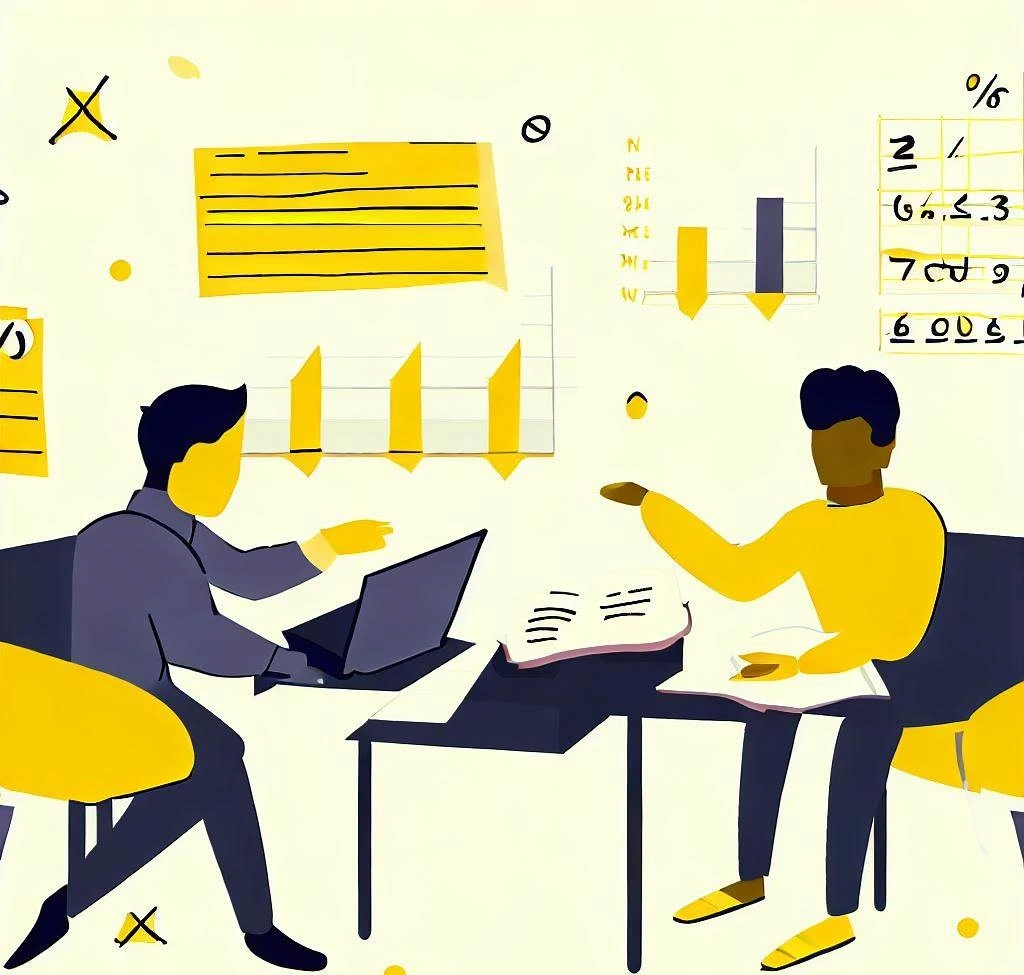How to Ensure Accuracy When You Pay Experts to Solve Your Statistics Assignment

- Select the Right Expert
When paying for statistics assignment help, it is essential to choose the appropriate professional to guarantee correctness. Here’s how you can choose the right expert wisely:
Assess the experience and credentials of possible specialists first. Seek out experts who hold degrees or certificates in statistics or a related discipline that are relevant. Think about their training history and any specific schooling they may have received. Additionally, look at their statistics-related professional expertise and the kinds of previous assignments they were effective in finishing.

Reviewing examples of their prior work is crucial after that. You can evaluate their correctness and attention to detail by asking for examples or portfolios. Look for evidence that they can handle intricate statistical topics and provide accurate responses. Pay close attention to the precision of their calculations, the simplicity of their justifications, and the general strategy they use to tackle statistical issues.
Read reviews and client testimonies in addition to looking at samples. This will give information about the expert's accuracy and dependability history. Look for reviews that focus on the accuracy of their work and their capacity to satisfy clients. You can feel confident in their talents if you read encouraging reviews and suggestions.
Additionally, think about how well the expert's working style and communication style fit your requirements. For accuracy, communication must be done well. Make sure the expert's preferred method of communication matches your expectations by discussing it with them. A solid fit in terms of communication can help to generate accurate results and a clear knowledge of the assignment's needs.
Finally, it's critical to take the expert's accessibility and responsiveness into account. The key to addressing any queries or worries that may surface throughout the assignment process is timely contact and rapid responses. Make sure the expert is dedicated to keeping in touch on a frequent basis and is readily available to provide updates on the status of the assignment.
You may choose an expert who possesses the necessary skills and can produce accurate results by carefully checking the qualifications, going over samples of their work, taking into account client feedback, assessing their communication style, and making sure they are available. Making the appropriate decision up front enhances the likelihood that you'll get excellent solutions that satisfy your accuracy needs.
- Provide Clear Assignment Instructions
- Establish Effective Communication
- Review and Verify Results
- Address and Resolve Inaccuracies
When paying specialists to solve your statistics assignment, it is crucial to provide specific assignment requirements in order to guarantee correctness.
First, clearly state the assignment's requirements. Give a thorough explanation of the assignment, mentioning any particular statistical concepts, methods, or procedures that must be used. Clearly clarify the assignment's goals as well as any special instructions or formatting demands.
Talk to the expert about the necessary level of accuracy after outlining the requirements. Share your expectations for the accuracy of computations, the proper application of statistical techniques, and any particular standards for the presentation of data. Make careful to explicitly state any required decimal places, significant figures, or statistical requirements if there are any.
Address any potential difficulties or complexity related to the assignment to ensure correctness. Determine any particular data restrictions, potential biases, or assumptions that should be taken into account. Give the analysis the appropriate data sets, variables, or information. By doing so, the expert will be better able to comprehend the assignment's context and make informed choices all throughout the process.
Additionally, promote open communication and a cooperative environment. Be prepared to respond to any inquiries or requests for clarification from the expert. Respond to their questions right away and offer any additional materials or information that will help them comprehend the assignment. Clear lines of communication will reduce misconceptions and enable proper instruction interpretation.
Finally, stress the need of submitting the work by the deadline. The deadline, any milestones, and any prerequisites for interim submissions should all be made clear. Giving the expert a deadline for the assignment enables them to arrange their work accordingly and guarantees that you will receive the finished assignment on time.
You may improve the correctness of the expert's work by giving clear and thorough assignment instructions, outlining the expected level of accuracy, addressing potential difficulties, encouraging teamwork, and setting firm deadlines. In order to match your expectations and provide a high-quality statistics assignment, the expert will follow clear directions and maintain good contact.
When paying an expert to solve your statistics assignment, excellent contact with the expert is essential to ensuring accuracy.
Keep in touch with the expert frequently during the assignment's completion. Choose a method of communication that suits both parties, such as scheduled video calls, messaging apps, or email. This enables the quick and effective transmission of information, guaranteeing that any queries or worries may be handled right away.
Ask the expert for updates on your progress. To track the progress and make sure the assignment is proceeding as planned, ask for frequent updates on the status of the assignment. This keeps you informed about the expert's methodology and enables you to offer suggestions or, if necessary, make corrections.
Promote honest and direct communication. Create an atmosphere where the expert feels at ease asking questions or looking for further information. Respond to their questions and, if necessary, give thorough justifications. This cooperative method reduces the possibility of misinterpretation and encourages precise understanding of the assignment criteria.
Discuss any obstacles or problems the expert might face. Encourage them to express any thoughts, ideas, or worries they may have regarding the assignment. By listening to what they have to say, you open up the door for proactive problem-solving and make sure that any possible accuracy problems are dealt with right away.
Be clear and concise in your instructions and criticism when speaking with the expert. Clearly state what you expect, emphasizing any areas where accuracy is important. In a sympathetic manner, offer constructive criticism, pointing out any errors or areas that should be improved. This improves the expert's comprehension of your needs and their capacity to provide correct results.
Finally, thank the expert for their work and remember to keep your tone polite and professional. Appreciate their skills and the value they add to the assignment. Positive working relationships are created by effective communication, which inspires the expert to pursue accuracy and perfection in their work.
You may improve the correctness of the expert's work by establishing efficient communication, keeping regular updates, encouraging collaboration, giving clear instructions, and maintaining a polite tone. Effective communication ensures that everyone is on the same page with regard to the assignment, makes it easier to address any issues or concerns quickly, and eventually helps to produce accurate and excellent answers to statistics assignment problems.
When paying for statistics assignment help, it is essential to review and double-check the results the expert has provided.
Start by carefully examining the solutions offered. Examine the expert's computations, data analysis, and interpretations with great care. Compare the outcomes to the assignment's requirements and anticipated results. Check your argument for any possible mistakes, contradictions, or holes.
Check the expert's assumptions and methods. Determine whether the statistical methods used are acceptable for the assignment at hand and compliant with the specifications. Think about if the analysis's data was accurate and whether the assumptions were sound. This stage makes sure the expert's strategy is sound and helps get precise results.
Consider asking a statistician or other expert in the field for a second opinion if you are unsure or have any concerns about the solutions' accuracy. A new viewpoint can offer insightful information and support the correctness of the findings. An additional layer of confidence can be added by consulting a reliable source in order to authenticate the expert's work.
Examine the solutions' overall coherence and clarity in addition to their technical elements. Examine the expert's explanations to see if they are clear, logical, and concise. Search for any places that might need more elaboration or clarification. Accurate and well-understood results are signs of explanations that are clear and coherent.
If any problems or inaccuracies are found throughout the review, express your concerns to the expert right away. Give detailed feedback, emphasizing the areas that need improvement or more information. In order to ensure that the final solutions meet the required level of accuracy, request changes as needed.
To guarantee that the solutions satisfy the necessary standards of accuracy, the review and verification procedure is crucial. You may make sure that the expert's results are accurate and of high quality by doing a thorough assessment, checking the methodology and assumptions, getting a second opinion if necessary, examining the clarity of the explanations, and offering helpful criticism.
When paying someone to complete your statistics assignment, addressing and resolving inconsistencies is a crucial step to make sure the final findings achieve the expected degree of accuracy. Here’s what you should consider when addressing and resolving inaccuracies:
First, let the expert know exactly about any errors you find. Express your concerns and be as clear as possible about the places where you have discovered inconsistencies or mistakes. Communicate in a respectful and constructive manner, placing special emphasis on finding precise answers.
Talk with the expert to better grasp their viewpoint and the justification for the errors. Encourage them to clear any misunderstandings and explain their strategy. This open dialogue encourages cooperation in resolving the inaccuracies and fosters mutual understanding.
Work with the expert to put the necessary corrections into place if the errors are small or simple to fix. Give detailed guidance on the necessary adjustments, stressing the importance of accuracy. To guarantee that the updates meet your expectations, stay involved throughout the process.
Discuss your alternatives if there are more severe errors that call for considerable adjustments. Compare the viability of editing the already-written material to beginning from scratch. Determine the best course of action by assessing the impact of the errors on the assignment as a whole.
Consider talking with a different specialist, your academic advisor, or your instructor if the errors continue or can't be fixed adequately. Getting an unbiased perspective will help you decide the best course of action to take in order to properly fix the errors.
You should keep in touch with the specialist effectively throughout the resolution process. Update them on the status of the solution in a timely manner and keep them updated. You can work together to correct the errors and find accurate solutions by keeping the lines of communication open.
In the end, addressing and resolving inaccuracies involves cooperation between you and the expert, clear and open communication, and constructive criticism. You may make sure that the end results are accurate and up to par by quickly discovering and disclosing errors, conversing with others, making the necessary corrections, and asking for more help if necessary.
Conclusion
There are several advantages to hiring professionals to complete your statistics assignment, but accuracy must be guaranteed. You may improve the correctness of the solutions and get the most out of professional statistics assignment assistance by choosing the proper expert, giving clear directions, keeping efficient contact, examining outcomes carefully, and fixing inaccuracies swiftly. Remember that accuracy is essential in statistics, and by adhering to these recommendations, you may guarantee superior, accurate outcomes that support your academic performance.